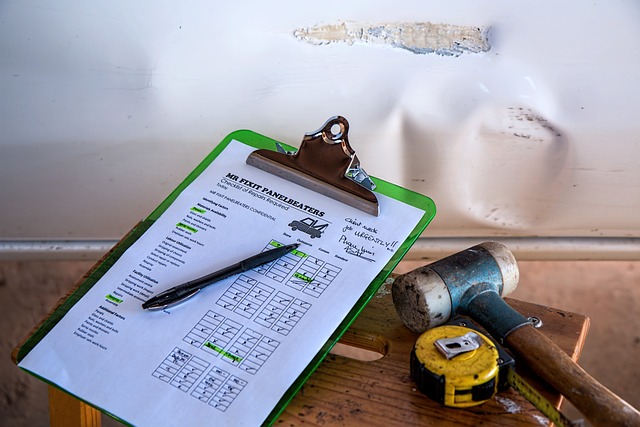Small businesses thrive on adaptability but must manage risks effectively through Small Business Insurance. This involves understanding industry-specific hazards, asset protection, liability management, and financial stability goals. Comprehensive coverage safeguards physical structures, equipment, intellectual property, and data against unforeseen events. Liability coverage protects against lawsuits and financial losses from accidents or injuries. Property insurance secures buildings and assets from events like fires and thefts. Worker's compensation ensures medical expenses and support for workplace injuries. Business Interruption Insurance compensates for lost income during crises. Customizable plans align with specific business needs, avoiding over-insuring. Choosing a reputable provider with tailored coverage and favorable reviews ensures financial security and peace of mind.
In today’s competitive landscape, tailored insurance for small businesses is no longer an option but a necessity. Understanding your unique needs is the first step towards securing your investment. This comprehensive guide delves into essential aspects of small business insurance, from asset protection and liability coverage to specialized policies like business interruption and worker’s compensation. By exploring customizable options and tips for choosing the right provider, you’ll be equipped to navigate the process and safeguard your venture.
Understanding Your Small Business Needs

Small businesses operate in a dynamic environment, facing unique risks and challenges that require specialized attention. Understanding your business needs is the first step towards securing the right Small Business Insurance coverage. This involves assessing factors like industry-specific hazards, asset protection, liability exposure, and financial stability goals. Every small business is distinct, with its own set of strengths and weaknesses; therefore, a tailored insurance plan is essential to mitigate potential losses and ensure continuity.
Business owners must consider their operations, employees, customers, and the legal landscape in which they operate. By evaluating these aspects, you can identify potential risks and choose insurance policies that align precisely with your business’s needs. This proactive approach not only safeguards against unforeseen events but also demonstrates a commitment to long-term success and resilience.
The Importance of Insuring Your Business Assets

Protecting your business assets is a cornerstone of any well-planned small business insurance strategy. These assets, from physical structures and equipment to intellectual property and data, are vital to your operations and financial stability. Insuring them offers a safety net against unforeseen events like natural disasters, accidents, theft, or cyberattacks, which can otherwise cripple your business.
A comprehensive small business insurance policy helps safeguard your investment by covering potential losses. This peace of mind allows you to focus on growth and success without the constant worry of what might happen if the worst occurs. By prioritizing asset protection through insurance, small businesses can navigate risks with confidence, ensuring they’re prepared for any challenge that comes their way.
Liability Coverage: Protecting Against Lawsuits

Liability coverage is a crucial component of small business insurance, shielding owners from potential lawsuits and financial burdens. This protection is essential as businesses operate within a legal framework, where errors, accidents, or injuries can lead to costly litigation. A comprehensive liability policy helps safeguard against these risks, ensuring that unexpected legal issues don’t become financially devastating.
For instance, if a customer slips and falls on your premises, they may file a lawsuit seeking compensation for their injuries. Small Business Insurance with adequate liability coverage can cover the legal fees and any damages awarded, providing peace of mind and financial protection to the business owner.
Property Insurance: Securing Your Physical Space

For small business owners, securing your physical space is a cornerstone of risk management. Property insurance plays a pivotal role in this strategy by safeguarding against potential losses stemming from unforeseen events like fires, thefts, or natural disasters. This type of coverage ensures that if your business assets are damaged or destroyed, you have the financial backing to repair or replace them, minimizing downtime and keeping operations running smoothly.
When considering small business insurance, property coverage should be at the top of your list. It includes not just the building itself but also inventory, equipment, and fixtures. Some policies even extend protection to business income losses if your premises become unoccupiable due to a covered event. By investing in robust property insurance tailored to your specific needs, small businesses can protect their most valuable assets and ensure long-term stability.
Employee-Related Risks and Worker's Compensation

Small businesses often bear a significant burden of employee-related risks, making comprehensive insurance coverage essential. These risks encompass various aspects, from general liability to more specific concerns like worker’s compensation. Worker’s compensation insurance is a crucial component of small business insurance, designed to protect both employers and employees in the event of workplace injuries or illnesses. It provides financial security by covering medical expenses, rehabilitation, and lost wages for workers who suffer work-related harms.
By purchasing tailored small business insurance that includes worker’s compensation, employers demonstrate their commitment to the well-being of their workforce. This proactive step not only ensures legal compliance but also fosters a positive company culture. It demonstrates to employees that their employer prioritizes their health and financial security, enhancing job satisfaction and retention.
Business Interruption Insurance: Continuity Planning

For small businesses, maintaining operations during unforeseen events is crucial for survival. This is where Business Interruption Insurance steps in as a vital component of any comprehensive Small Business Insurance package. This type of insurance provides financial protection when a covered event disrupts normal business activities, such as a natural disaster or cyberattack. By offering coverage for lost income and extra expenses, it enables businesses to continue operations or resume them quickly after a crisis.
Business Interruption Insurance goes beyond mere compensation; it’s about continuity planning. It helps small businesses develop strategies to mitigate risks and ensure resilience in the face of potential disruptions. This includes implementing emergency response plans, data backup solutions, and alternative work arrangements. By combining this insurance with robust risk management practices, small businesses can safeguard their future, ensuring they remain operational and adaptable in an uncertain business environment.
Customizable Policy Options for Small Businesses

Small businesses come in all shapes and sizes, each with unique needs and risks. That’s why tailored insurance is crucial for their success and longevity. Unlike one-size-fits-all policies, customizable Small Business Insurance options allow business owners to select coverage that aligns perfectly with their operations. From general liability to property protection, insurers offer flexible plans that can be adjusted to include or exclude specific perils based on the nature of the business.
For instance, a tech startup may opt for cyber liability coverage to protect against data breaches, while a retail store might choose inventory coverage to safeguard its stock from theft or damage. This level of customization ensures that small businesses are not over-insuring aspects they don’t need, keeping costs down and providing peace of mind knowing they’re protected where it matters most.
How to Find the Right Insurance Provider

Choosing the right insurance provider is a crucial step in securing your small business. Start by evaluating your specific needs and industry risks. Small Business Insurance options vary widely, from general liability to professional indemnity, property coverage, and workers’ compensation. Researching different providers and their offerings will help you select a policy that aligns with your business’s unique requirements.
Consider factors like financial stability, customer reviews, and the quality of their claims process. Reputable insurance companies often provide better support and faster settlements. Don’t hesitate to request quotes from multiple insurers and compare them based on price, coverage, and additional benefits. This meticulous approach ensures you find a provider who understands the nuances of small business operations and can offer tailored Small Business Insurance solutions.
